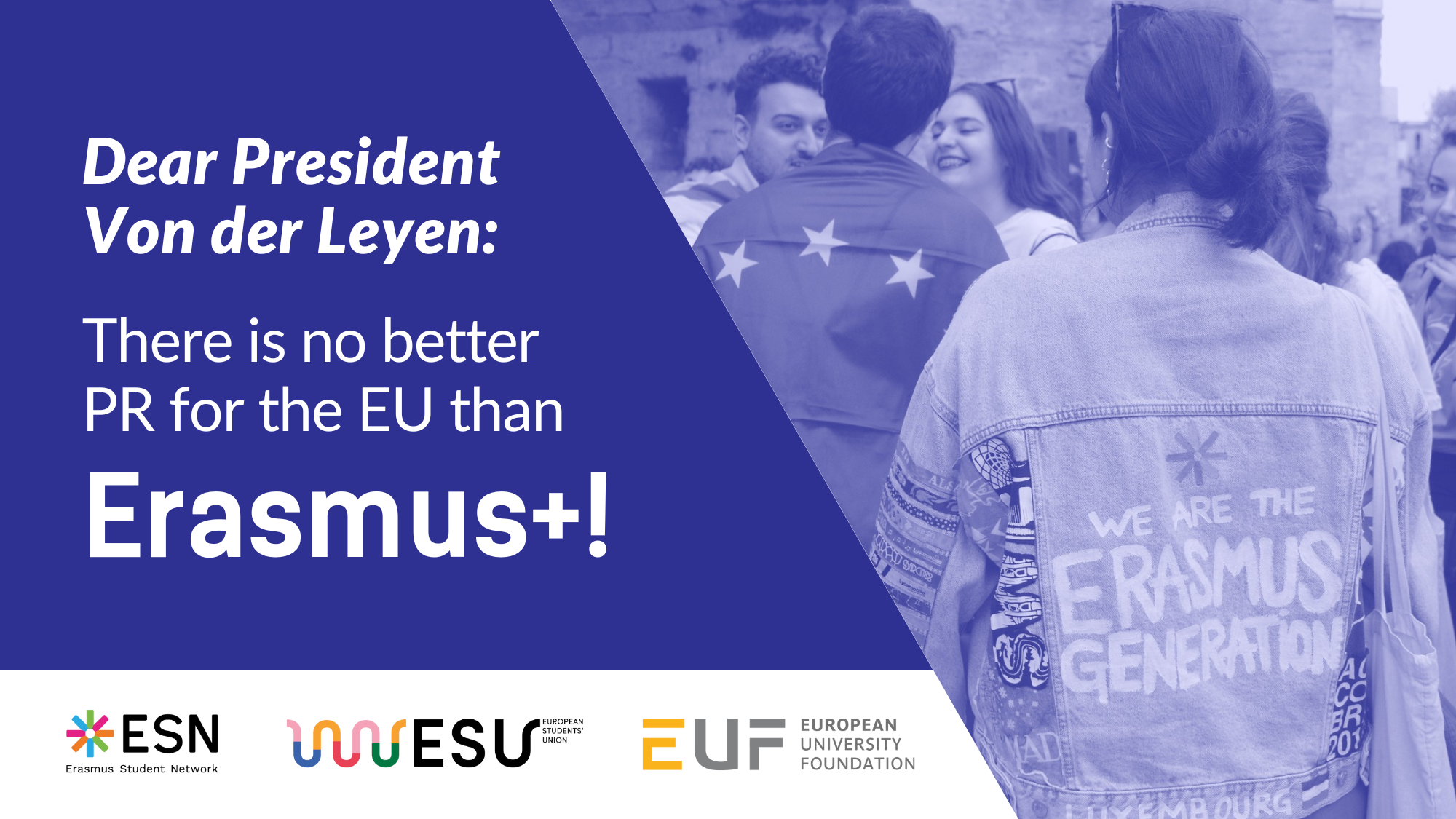
Students and Universities express their dismay at the news of the use of Erasmus+ funds to support new marketing initiatives
In light of the recent article published by Politico, which revealed the latest plans of the European Commission to channel Erasmus+ funds to support new marketing initiatives, the European Students’ Union, the European University Foundation and the Erasmus Student Network are joining forces to ask President Von der Leyen to rectify the decision and not to take any money from an already strained Erasmus+ budget.
The three organisations believe that Erasmus+ has repeatedly proven to be the best possible public relations tool among European citizens, as well as a source of inspiration for students and policymakers worldwide. No marketing campaign will be more effective at communicating what the European project is all about than making sure as many students as possible can benefit from the great opportunities provided by the programme.
Erasmus+ constitutes a tangible way to explain everything the EU stands for to citizens from all backgrounds, bringing together people from all walks of life, ideologies and opinions. Beyond its impact on individuals, the programme also supports the transformation of educational institutions, as well as innovation in education and broader social impact in the communities that engage with Erasmus+ initiatives. However, in times of inflation and a cost of living crisis, the programme’s budget needs to be further strengthened while maintaining the same ambition regarding mobility targets. It has to be done through higher student grants to ensure that participants from lower socioeconomic backgrounds don’t see their potential participation put at risk.
The news of Erasmus+ funds being diverted for PR risk hampering the already challenging battle of making the programme much more inclusive, which is its crucial policy objective until 2027. The organisations believe Erasmus+budget should not be one where other EU programmes can come to dip in. It is and should remain a fund supporting all kinds of learners, educators and young people.
In 2019, Erasmus+ was considered by European citizens as the third most positive result of the EU after freedom of movement and peace among the Member States, which speaks volumes to the relevance and significance of the programme. In a more recent youth Eurobarometer, more than half of young Europeans reported being aware of the programme's existence, with some countries reaching an awareness level higher than 70%.
On top of its relevance in the European context, Erasmus+ has a growing role, with more countries seeking to replicate its successful model. Recently, South Korea and Japan unveiled their plans to launch a new student exchange programme that “will be modelled after the popular Erasmus programme”, showing the interest and attractiveness of the programme. Erasmus also plays an important part in the creation of people-to-people contacts with EU neighbours and since the beginning of the full-scale invasion of Ukraine by Russia, the programme has supported thousands of Ukrainian students fleeing the country, proving how its flexibility can help to support students in need.
Instead of moving funds to launch new PR campaigns, the three organisations encourage the European Commission, Member States and the European Parliament to use the recently launched revision of the MFF to reinforce the inclusivity of the programme and support the work of the key stakeholders supporting its implementation. The three organisations stand ready to support in all ways possible.

Follow ESN